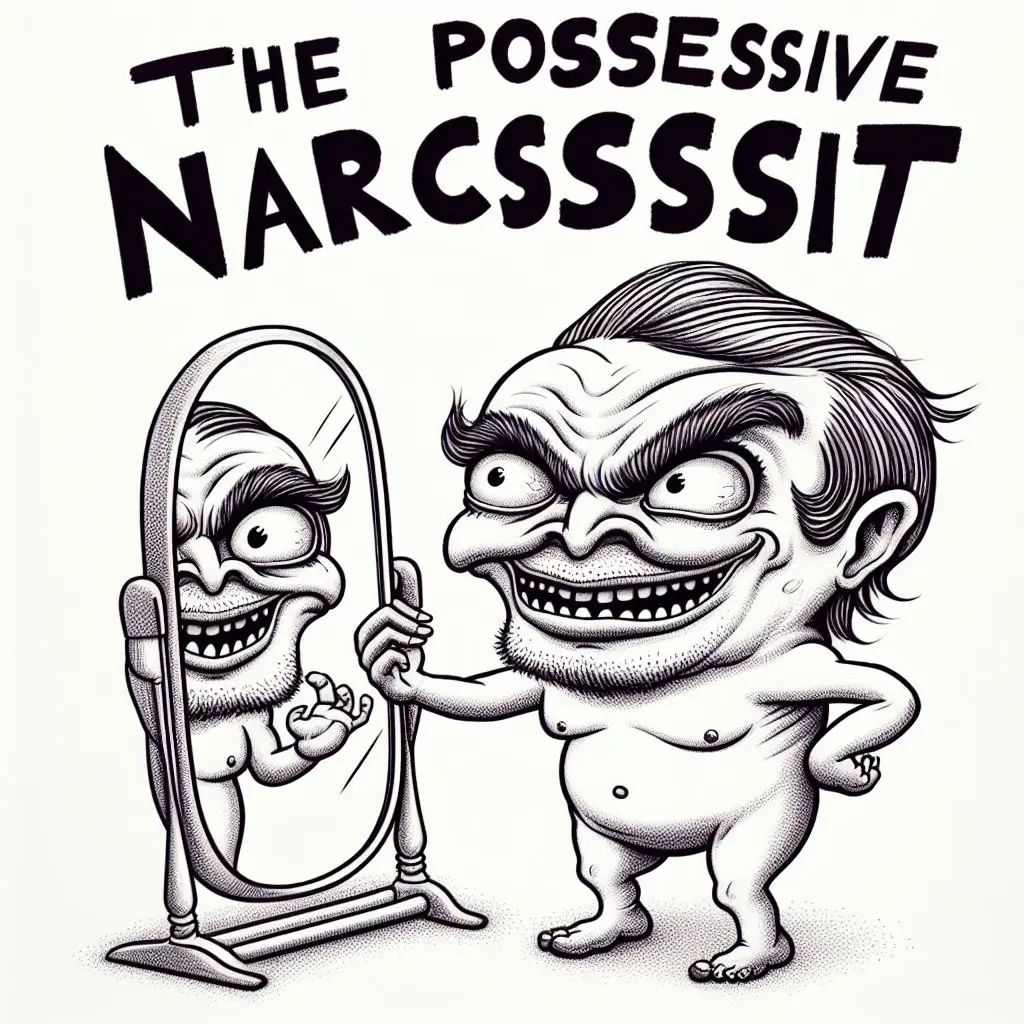Are you trapped with someone who craves total control? A possessive narcissist leaves you anxious, feeling their oppressive grip tightening every moment. They suffocate emotional freedom, twisting love into chains of manipulation.
Their toxic jealousy stems from deep insecurity – your independence threatens their fragile ego. By keeping you under surveillance through incessant texts and calls, they satisfy their obsession for dominance over your life.
This ominous pattern typifies relationships with narcissists who possess an overwhelming sense of entitlement. They unleash rage if you dare divert attention from their relentless demands for adoration. Let’s dive into the mind of a possessive narcissist.
Dissecting the Possessive Narcissist ‘s Mentality
Narcissists view partners as trophies, objects to control rather than independent beings to love. Their distorted grasp of intimacy hinges solely on power over you.
Appearances deceive; behind alluring charm lurks a vortex of manipulation and control. They crave constant validation, lashing out in narcissistic injury whenever you resist totalitarian demands.
Beware empty promises masquerading as charismatic affection – the goal is isolating you from friends, family, leveraging vulnerability into utter dependence on their false solace.
Spotting the Possessive Narcissist ‘s Web of Control

Keep your eyes peeled for these telltale signs of a narcissist’s suffocating grip:
1. Bombardment Through Texts and Calls
Their possessiveness manifests through a barrage of communication under the guise of care. But make no mistake – it’s about monitoring, an obsessive need for control over your every move.
2. Possessive narcissists are envious
A possessive narcissist feels excessive jealousy towards their partner. They try controlling who their partner socializes with, their activities, and appearance. They criticize excessively, undermining their partner’s confidence.
Insecurity fuels their need for control.
3. Possessive narcissists micromanage your life
If dating a narcissist, they’ll attempt to control every aspect of your existence. Constant questioning about your whereabouts, companions, and activities. Dictating your looks, social circle, and how you spend free time. Defying their authority risks provoking anger or violence.
Independence is unacceptable to them.
4. Possessive narcissists fear abandonment
This behavior stems from a deep-rooted fear of being deserted. Childhood rejection, perhaps from a parent or caregiver, instilled this insecurity. Perpetually seeking validation and reassurance of being loved fuels their actions.
Abandonment is their ultimate dread.
5. They remind you of their sacrifices
Possessive narcissists consistently mention their sacrifices for you or recount all they’ve done. A tactic to make you feel indebted, reinforcing their control.
Manipulators may try making you feel indebted, hoping you’ll remain in that toxic dynamic.
6. Possessive narcissists demand access to your private accounts
If an ex constantly requested passwords, tried snooping your phone – that’s possessive narcissism. This control-craving, deeply insecure personality disorder explains the behavior.
RehumanizeAt first, it seems flattering they want closeness. Yet it rapidly suffocates through fear, mistrust.
How narcissistic possession harms relationships?
It emotionally, mentally abuses victims, isolating them helplessly. Narcissists use threats, intimidation for control – possibly turning physically violent if challenged.
Their control demolishes relationship health, micromanaging partners resentfully. Narcissists’ abandonment fears fuel these destructive, possessive, controlling actions.
How can you handle being with a controlling, self-absorbed partner?
If your significant other is overly possessive and narcissistic, there are steps you can take. First, establish clear boundaries – decisively state what behaviors you won’t tolerate. You must stand firm, refusing to enable their controlling tendencies.
Secondly, don’t reveal insecurities or vulnerabilities. Narcissists exploit weaknesses, so project confidence and self-assurance. Don’t give them ammunition to manipulate you.
Finally, seek professional counseling. A therapist provides coping tools and strategies for maintaining your well-being despite your partner’s toxic behavior.
Closing Thoughts
Recognizing the warning signs of a possessive narcissist is important. Understanding their motivations empowers you to safeguard yourself and reclaim autonomy. I’m interested to hear your experiences dealing with such individuals. Please share any insights or advice in the comments.
